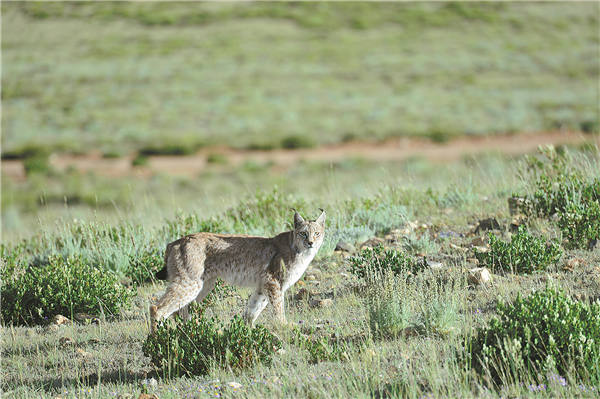

"I'm like a director, asking everyone to ensure that they're taken from the best angle and in the best light."
They captured exciting moments seeing red gorals, leopards and Zorotypus medoensis in the eastern part of the Himalayas, dominated by forest and subtropical rainforest.
On the two sides of central Qomolangma, the team focused on Alpine plants and animals, especially the Himalayan blue poppy.
In Ngari prefecture in the west of the Himalayas, Luo found wild yaks, lynxes and Apollo butterflies.
"The wings of the Apollo are as thin as cicada wings, and it's unbelievable to see such a small insect survive at an altitude of 4,500 meters above sea level, where the wind is often too strong for a person to stand steady," Luo says.
Generally speaking, Luo's team paid attention to rare creatures and those on the verge of extinction in Tibet.
"Humans are very small in front of nature, and if we can't stop the disappearance of endangered species, preserving them in the form of images will provide a foundation for future researchers to investigate," Luo says.
"Future generations will also see that there are beautiful creatures living at such a high altitude."